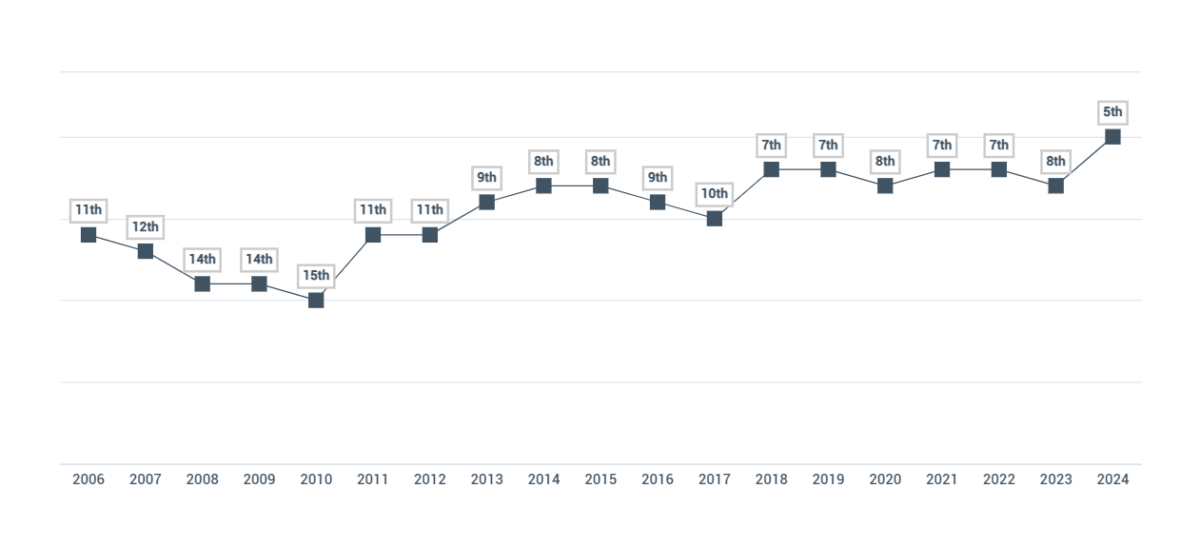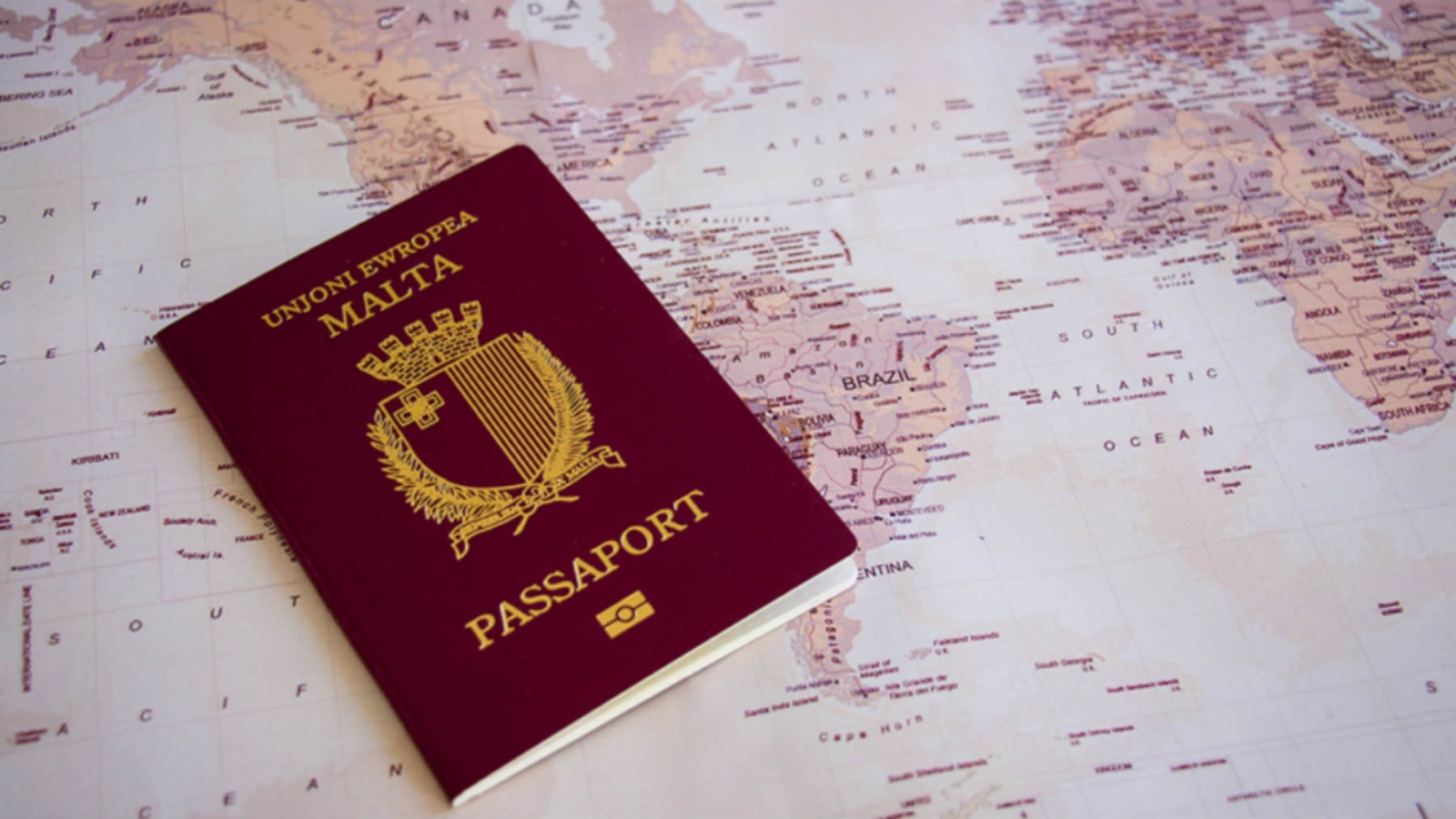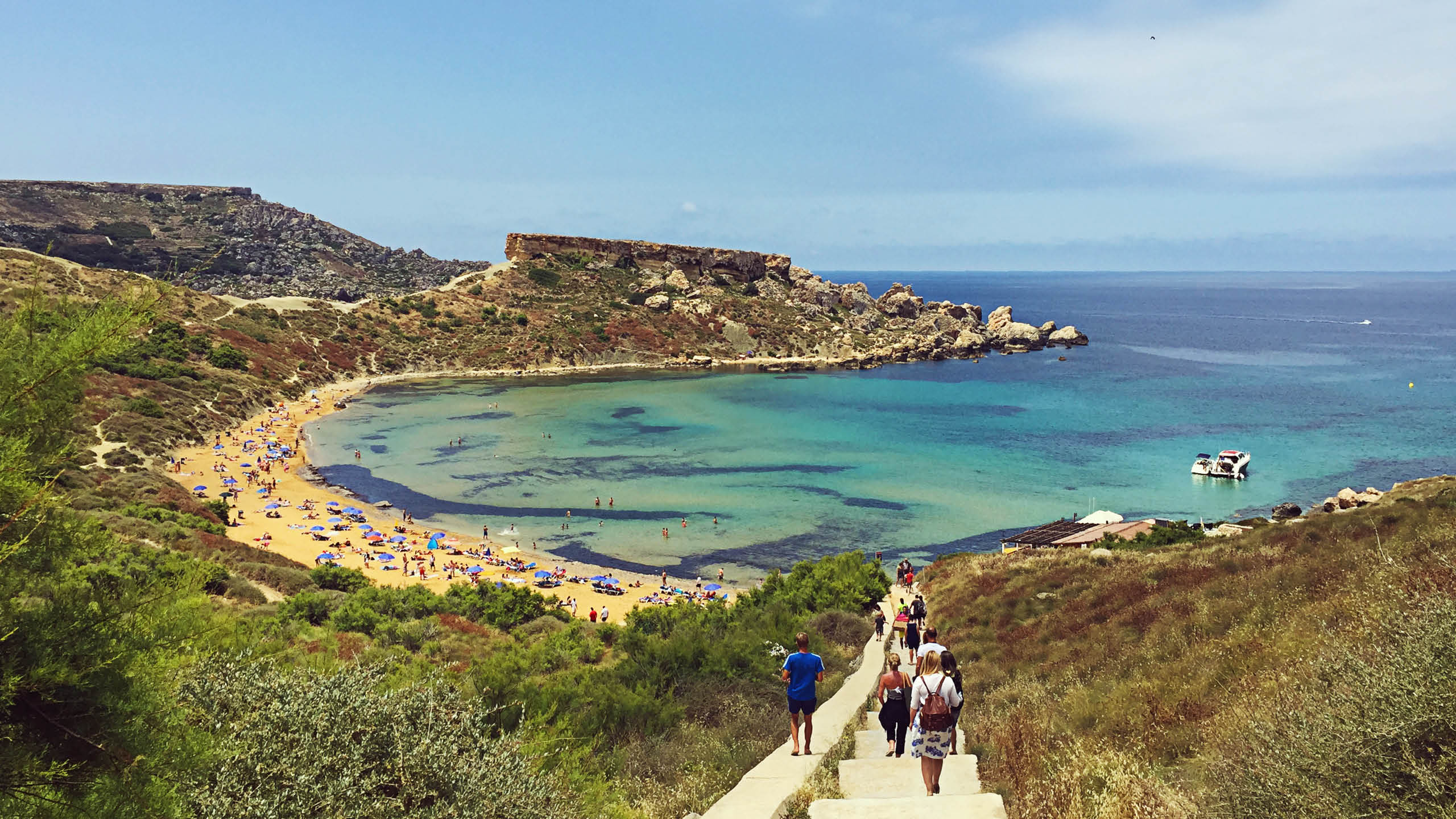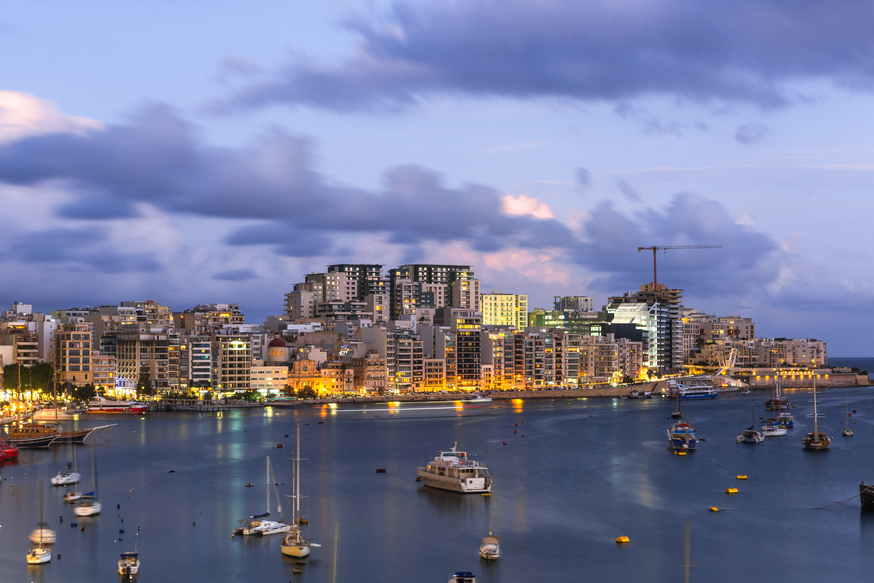The Maltese passport has been ranked the world’s fifth most powerful in the 2024 Henley Passport Index.
Last year, the passport stood in eight place, yet it has now climbed up to its highest-ever ranking.
In 2006, the Maltese passport was ranked as the 11th most powerful, losing its spot in 2007 after dropping to 12th, before going down further between 2008 and 2010, placing 14th and 15th. From 2011 onwards, Malta’s passport started climbing up the ranks again.

The Henley Passport Index is the primary and authoritative ranking of all global passports, evaluating them based on the number of destinations their holders can visit without needing a visa in advance. Therefore, it compares the passports of 199 countries and states to 227 travel destinations. In Malta’s case, the passport holds access to 190 countries.
In the same ranking, Malta is accompanied by Greece and Switzerland, surpassing Australia, Czechia, New Zealand and Poland who are in sixth place and Canada, Hungary, and the United States whose passports ranked seventh.
At the top of the rankings, France, Germany, Italy, Japan, Singapore and Spain are ranked first, followed by Finland, South Korea and Sweden in second place. The world’s third most powerful passport belongs to Austria, Denmark, Ireland and Netherlands while the fourth most powerful passport holders are Belgium, Luxembourg, Norway, Portugal and the United Kingdom.
Some countries, including Malta, implement citizenship-by-investment schemes (and similarly for residency) Malta allows prospective passport holders to receive Maltese citizenship after an investment of €600,000 with a residency period of three years, or €750,000 with a residency period of one year. They are also required to purchase property valued at a minimum of €700,000 or rent at €16,000 for at least five years. Lastly, they’re also required to fulfil a donation of at least €10,000 to a registered local philanthropic, cultural, sport, scientific, animal welfare or artistic NGO.
Malta had signed a 10-year contract with Henley and Partners, which saw them benefiting from four per cent of every contribution fee paid by successful citizenship applicants, in exchange for marketing and processing applications.
After much controversy and pressure from the European Commission this contract was revoked and the “Individual Investor Programme” ended prematurely. The Commission had criticised the scheme for being incompatible with the European Union’s principles, since Maltese citizenship granted passport holders EU citizenship.
Since then, Malta has initiated a new scheme called the “Exceptional Investor Programme”, which includes the residency requirements, while emphasising that citizenship is a national competence. Nonetheless, issues were raised on the matter by the Commission once more.
Għajn Tuffieħa Bay named ‘most beautiful beach in Europe’ for 2024 by European travel platform
The results are based on the votes of 103,224 worldwide travellers
MDA says April 2024 broke records with value of promise of sale agreements surging by 14.4%
A report from the MDA highlights that there were 1,385 promise of sale agreements last month
1,695 businesses found employing non-EU workers illegally in 2023
The figure amounts to a significant portion of all employers in Malta






